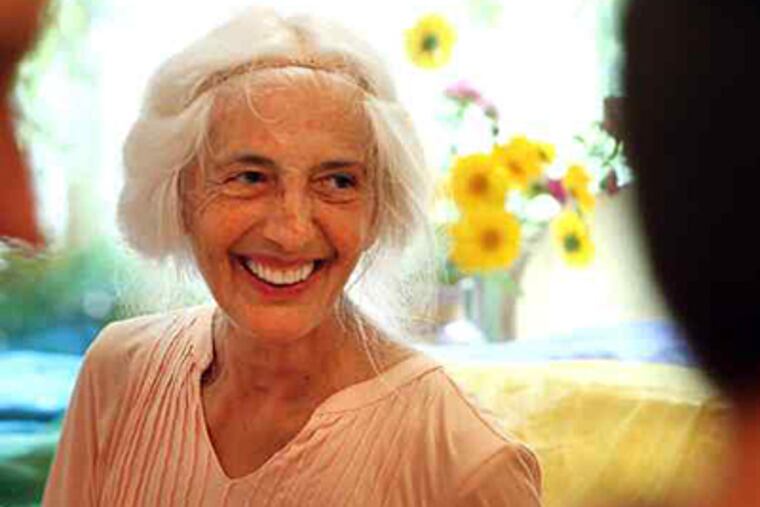Karen Heller: Camphill School 'an amazing blessing'
Oh, the glory! This weekend marks the music recital at Camphill School in Chester County, a remarkable holistic school for children with pronounced cognitive and developmental disabilities.

Oh, the glory! This weekend marks the music recital at Camphill School in Chester County, a remarkable holistic school for children with pronounced cognitive and developmental disabilities.
The recital, under the supervision of cotton-haired Elsbeth Sunstein, is so popular and vast that it lasts two days, involving almost half the students. There's "Chopsticks," and also Kathleen Rahling's accomplished take on Mozart's "Rondo."
Located on 80 verdant acres with custom-built cottages, Camphill resembles a retreat or utopian community more than a boarding school for special-needs children. One hundred students are taught by an international staff of 150, many of whom live in group houses with their charges.
Founded by Austrian pediatrician Karl Koenig in 1939, Camphill is a movement, with more than 100 programs in 22 countries. The Glenmoore campus was established in 1963 and caters to kindergarten through 12th grade (students advance annually). It remains Camphill's only U.S. school for children, so it draws a national enrollment.
To visit the campus is to fall in love. Children with IQs of 70 or lower, many with autism, children who struggled in other settings, can be seen dancing, playing, studying, working.
There's a farm, a homeopathic center, multiple performing spaces, gardens, horses, and Beulah, the extremely fertile Yorkshire White and Hampshire pig.
"We remove all the institutional aspects, all the walls. Many of them learn better not being behind a desk," says development director Guy Alma, a 20-year Camphill veteran. "We don't treat them as patients, but human beings." Many parents melt in tears when they first visit, overwhelmed by the approach, the care, the setting, the comprehensive staffing.
The children study Western civilization, Homer's Iliad, Shakespeare, astronomy. Some children grasp the concepts; others are delighted by the magic and art. In high school, there's a student council, a prom, and electives. Classes leave campus frequently on field trips.
"The school has been an amazing blessing for our family," says painter Nancy Bea Miller of Narberth. Her son, Henry Downs, 16, mentally challenged, nonverbal, and with severe autism, arrived at Camphill four years ago after exhausting a variety of programs and therapies. "He's been able to experience autonomy. He's much healthier and happier. It is unusual to find a special-needs school where the children are valued as the individuals they are, and not seen only as personifications of a disability."
The Camphill movement uses the Waldorf School approach, integrating intellectual, physical, and spiritual learning for children with special needs. The campus is home to an international four-year teacher-training program, and for young adults ages 18 to 21 there is a working 56-acre farm, which is undergoing a $6 million expansion. Alma lives there with his wife, two sons, and five autistic adults in an 18th-century farmhouse.
Often a child's accomplishment is simple, yet profound. An overjoyed father called to tell Alma that his son, home for Thanksgiving, received a call from another student from Camphill.
"He had never gotten a phone call," Alma says. "He had never had a friend."
The school offers an array of therapies - not only physical, speech, and occupational, but also color therapy, horseback riding, and eurythmy (music and movement) to spur development and nurture well-being. Many special-needs children grow passive and overweight from a lack of physical stimulation, and can suffer increased medical issues in adulthood. At Camphill, teachers look for what keeps their charges happy and occupied. The children are always moving.
Camphill's cost is significant: $63,000 annually for boarding ($34,500 for the 25 day students), which turns out to be less than the cost of many other programs. (There's also a summer schedule; Camphill children benefit from a consistency in schooling and environment.) Very few families pay the full freight; most receive support through substantial school district stipends, scholarships, and grants. One child from Chicago had his local funding pulled recently. Camphill is organizing a benefit in his honor.
"Our aim is not to protect these children from life," Alma says. "Our aim is to introduce them to life."
Karen Heller:
A photo gallery of the Camphill School is at http://go.philly.com/camphillEndText